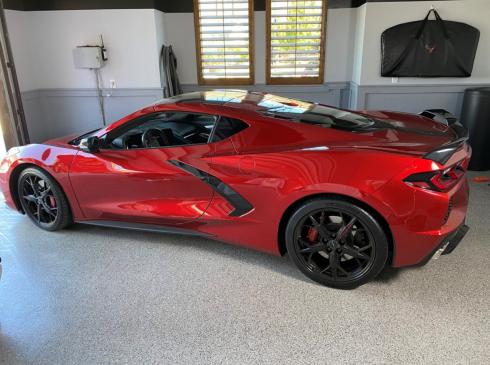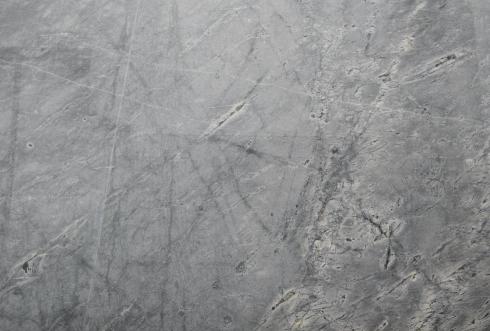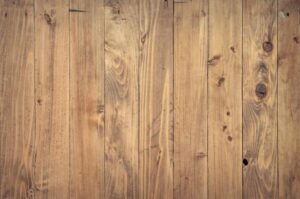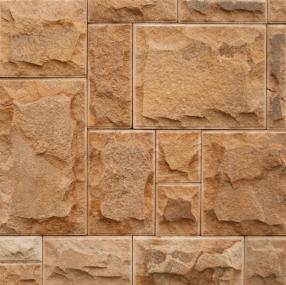What makes epoxy floors stand out from traditional flooring materials like concrete and wood? While epoxy floor coatings have been generating a buzz lately, their history goes back to the early 20th century. This is still no match for construction materials that have been around for centuries; concrete’s origins date back to 1300 BC!
Even so, evolving technology has allowed steel coated epoxy floors to meet, and even surpass, the beneficial qualities of traditional flooring materials. With more than 30 years of experience and 6500 epoxy flooring jobs, our company advocates for epoxy flooring over other flooring materials.
If you’re interested in learning about what makes epoxy floors unique, read this epoxy vs. traditional flooring comparison and decide which flooring type suits your needs best.
1. Concrete Flooring vs. Epoxy Floor Coating
Concrete has been used in construction for ages because of its hardness and resistance to fire. Its toughness and malleability make it a great flooring material, but let’s look at how it compares to epoxy floors.
Concrete’s porousness distinguishes it from epoxy resin. When calcium reacts with water, the resulting calcium silica hydrates are tightly bonded to each other with tiny spaces in between. These pores become the cause of moisture and dirt being trapped within concrete floors, causing damage.
In comparison, epoxy flooring is a compound made of polymers that react with hardeners to form almost unbreakable bonds with no gaps in between. This causes epoxy floors to have a seamless finish and an advantage over concrete floors.
Steel coated epoxy floors are also far easier to clean than concrete floors because they don’t trap any dirt or bacteria; they’re ideal flooring for shops and showrooms!
2. Vinyl Flooring vs. Steel Coated Epoxy Floors
Vinyl floors have gained popularity due to their easy application method and resistance to moisture. They’re also affordable, making them an easy choice for many budget-conscious homeowners.
Vinyl is made of polyvinyl chloride (PVC), which is a synthetic polymer of plastic. This vinyl sheet is backed by multiple layers of thick fiber sheets to make it durable. The complete set of layers is then set over your floor.
While they seem practical, vinyl floors are vulnerable to scratches which cannot be repaired because of the material. This makes them ill-suited for areas where machinery is operated, or furniture is moved around. Even pets can permanently damage vinyl floors with their claws!
Epoxy floor coating, on the other hand, is completely scratch and impact resistant. The hardness of the epoxy resin can withstand heavy traffic and is designed to stay damage-free even as industrial epoxy floor coating. The best part about epoxy flooring is that if installed by professionals, it only takes 3 to 4 days to cure, which makes it as easy to construct as vinyl flooring, with the added benefit of robustness.
3. Wood Flooring vs. Epoxy Floor
Epoxy floors are free of volatile organic compounds (VOCs), making them non-toxic flooring options. The epoxy floor coating hardens so well that no chemical compound dissolves into the atmosphere, keeping you and the environment safe from hazardous chemicals.
Wood is long-lasting but needs frequent sanding and repair work to stay in good shape. The frequent maintenance work can be expensive, and chipped wood can be dangerous. In addition, wooden floors aren’t suitable for industrial floors or areas with heavy traffic, like hangar floors.
Steel coated epoxy floors are versatile and work well for commercial and residential uses. They’re also robust and don’t require repairs at all—we give our customers a lifetime guarantee when they hire us as steel flooring contractors.
4. Tile Flooring vs. Epoxy Flooring
Tiles are considered a luxury flooring option, with numerous options to choose from. They can spruce up your kitchen, bathroom, and even living room floor and walls with beautiful designs and patterns. Tiles also come in many forms, including ceramic, stone, and porcelain. What sets them apart is their installation—tiles are fixed to a surface with a grout mixture sealing the gaps between them.
While their versatility is the main attraction, tiles are waterproof and scratch-resistant. The main drawback of tiling is the grout, which needs to be repaired from time to time for the tiles to stay robust. Depending on the material, some tiles may also shatter due to heavy impact. Plus, tiling is expensive; you have to really be ready to spend if you want to tile your floors.
Steel coated epoxy floors are inexpensive and impact-resistant and require little or no maintenance at all. They can be customized for a robust warehouse floor or a grand living room with metallic flooring. Either way, the benefits of epoxy floors won’t change.
As technology advances with time, it aims to eradicate the flaws of traditional construction methods and introduce cost-effective and durable procedures. Epoxy floors are a successful specimen of technological progress, evident through this epoxy vs. traditional flooring comparison.
Give your home or workplace a steel coated epoxy floor makeover, and never worry about damaged floors again. For seamless steel-coated epoxy floors in Draper, Las Vegas, Prescott, and other cities, contact Steel Coated Floors or learn more about 30 years of our services here.





